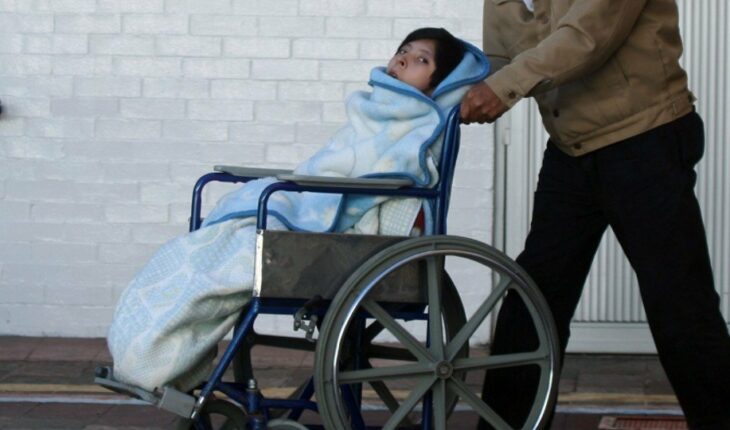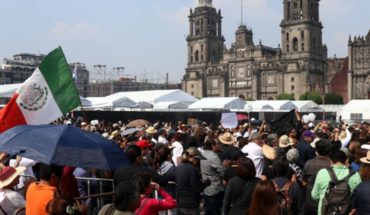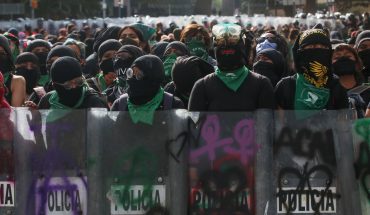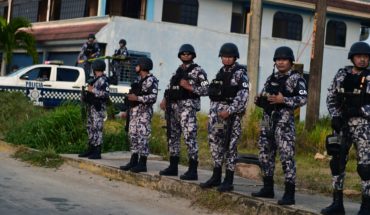With the new impulse of the Mexican government to expand the benefit of pensions to people with permanent disabilities, we seek throughout the region what kind of programs there are and how much money the states have to support this group.
Although all countries have different models of data updating (censuses, records, database), according to the latest World Bank report “Inclusion of persons with disabilities in Latin America and the Caribbean: A path to sustainable development” published in 2021, in the 21 main countries of Latin America and the Caribbean live 85 million people with disabilities, that is, 14.7 percent of the total population.
This means that in about one in 3 households (52 million) there is a person with a disability.
Of this total, 3 out of 10 people (about 17 million Latin Americans) reported having a severe disability. But a lot of data is still missing because, for example, very few states do a thorough survey to know the number of people living with psychosocial disabilities.
According to this same WB report, the main causes of disability are chronic health conditions (such as cardiovascular and congenital), the aging of the population and injuries caused by violence, work accidents, traffic and natural disasters.
However, these data – collected from national censuses – do not include a section that the Pan American Health Organization (PAHO) does take into account, which argues that mental health and substance abuse disorders contribute significantly to the regional prevalence of disability.
Read: Treasury outlines an increase in pensions for people with disabilities in 2023
There are also other conditions that could increase the percentage of PWD in the region: the drop in vaccine application. In Bolivia, Brazil, Haiti and the Bolivarian Republic of Venezuela, for example, vaccination rates have fallen by at least 14 percentage points since 2010 (as reported in 2020 by the World Health Organization). And to make the horizon bleaker, these numbers are forecast to fall further as all health systems have been under increasing pressure to respond to the COVID-19 pandemic.
Money and containment network
According to article 28 of the Convention on the Rights of Persons with Disabilities (signed by all the countries of Latin America and the Caribbean) “States Parties recognize the right of persons with disabilities to social protection and to enjoy that right without discrimination on the basis of disability, and shall take appropriate measures to protect and promote the exercise of that right, these include: (b) Ensuring access for persons with disabilities, in particular women and girls and older persons with disabilities, to social protection programmes and poverty reduction strategies; (c) Ensure access by persons with disabilities and their families living in poverty to State assistance to cover disability-related expenses, including training, counselling, financial assistance and adequate temporary care services; (e) To ensure equal access for persons with disabilities to retirement programmes and benefits.”
With this background, practically in all the countries of the region there are social assistance programs that include both people with disabilities and older adults (which are the age group with the highest incidence in all countries).
What the World Bank report found is that in many economies, these pensions, grants, scholarships or contributions do not help solve situations where disability and poverty are combined. They can even be a brake on the pursuit of economic independence. For example, in Argentina, about 6 percent of people with disabilities were not looking for work for fear of losing their pension, despite having very little chance of getting a job that would compensate for that loss.
In Uruguay, a similar situation occurs because the transfer law does not allow the pension to be given to individuals or families who have work in the formal sector of the economy.
Across the region, government financial aid ranges from $26 to $661. This huge gap is most evident in countries that also provide pensions to older adults.
Of the 18 countries reported, the one that gives the most money in non-remunerative pensions is Uruguay (423.66 dollars), followed by Brazil (254 dollars) and Costa Rica (232.83).
At the other extreme are the countries that mVenezuela ($1.40), Paraguay ($5.82) and Honduras ($25) are directly transferred.
Mexico, with 71.53 dollars per month of its welfare pensions, is in 11th place among the 18 countries evaluated, being surpassed by smaller economies such as the Dominican Republic, Guatemala or El Salvador.
My country, my pension
Country by country, this is the amount (and conditions) that people with disabilities access. To homologate all the programs, in each case is the monthly amount expressed in dollars at the quote of June 6, 2022:
Mexico
Through the Secretariat of Welfare, the government provides a bimonthly payment to people living with permanent disabilities who belong to indigenous groups in the country from 0 to 64 years of age and to children and young people with permanent disabilities from 0 to 29 years old who live in municipalities and urban areas of high and very high marginalization. The cap was on 1 million beneficiaries and there are already 29 states that have promised to contribute 50 percent of the cost of increasing the number of beneficiaries.
$71.53
Argentina
It is called “Non-contributory disability pension” and is universal for all those without other resources (such as a retirement) and who are under 65 years old. The amount is equivalent to 70 percent of a minimum state pension.
In addition, families can receive a ‘Universal Allowance for Children with Disabilities’, until the beneficiary is of legal age.
$114.20 (pension) and $119.40 (Child allowance)
Chile
The government has a “Basic Solidarity Disability Pension (PBSI)” plan. This applies to people between the ages of 18 and 65 who do not have access to a pension or retirement.
They also have a ‘Mental Disability Allowance (SDM)’ that applies to people under 18 years of age and is given to all minors with intellectual, motor and severe sensory disabilities.
$228 (PBSI, 18+) and $86 (SDM, under 18)
Read: Between challenges and satisfactions: being a mother of a boy or girl with a disability
Paraguay
The country has two pension models: one for people with mild disabilities (up to 1 person per family) and another for people with severe disabilities (up to 2 per household), as long as they are not beneficiaries of the Senior Citizens Program granted by its Ministry of Finance.
$5.82 (Mild disability) and $21.86 (Severe disability)
Brazil
The Continuous Provision Benefit (BPC) is a pension that is delivered by the state individually, which is neither life nor transferable. Established by the Constitution, it guarantees the transfer of the equivalent of a minimum wage for people with disabilities of any age, who demonstrate that they have no means to support themselves or be supported by their families.
$254
Peru
The support is part of a program called Contigo and is a non-contributory pension for people with severe disabilities in poverty that also has a chapter for older adults.
Its Ministry of Development and Social Inclusion in coordination with the Banco de la Nación deliver economic support to “Yanapay”. In special cases, when beneficiaries prove that they cannot move from their homes, they receive pensions at home in the so-called ‘paying carts’ operated by securities transport companies. The pension is paid every two months.
$80.92
Bolivia
The disability benefit is paid to those under the age of 65. Payment is made under the Universal Scheme to those who are evaluated with a severe or very severe disability. The pension is monthly and is equivalent to 20 percent of the national minimum wage.
$48.5
Uruguay
Severely dependent persons who are between 0 and 29 years of age or over 80 are entitled to receive a non-contributory pension. And those who are also within the Personal Assistant Program of the National Integrated Care System (SNIC), through it a subsidy (partial or total) is granted to access the accompaniment of a caregiver. This is the first Latin American experience in this area and began in 2015.
$423.66
Ecuador
The country has a model of complementary monthly cash transfers of the Human Development Bond (BDH). They are social pensions aimed at older adults (aged 65 or over) and people with disabilities who are in vulnerable conditions and are not affiliated to a public security system.
In addition, the government makes the PCD the VAT refund equal to or greater than 30 percent according to the qualification made by its health authority. The payment of the pension is monthly.
$50
Venezuela
Through its Vice-Ministry of the Supreme FeliciSocial Del Pueblo, offers the pension for disability or partial disability (sic) within the Social Protection System devised by Nicolás Maduro through the Carnet de la Patria. The aid is monthly.
$1.40
Panama
In Panama there are subsidies for people with severe disabilities and if you are a minor you can give the father or mother, a decision that depends on what the family judge establishes. The government also has a program #PanamáIncluye that gives a number of discounts for PWDs ranging from 50 percent on hotels, 20 percent on medicines, 30 percent on transportation services and 30 percent on recreational activities.
$80
Colombia
The government has a register of persons with disabilities (Sisbén) that is permanently updated.
Each month a voucher is given out that can be exchanged in self-service stores for food. The amount covers 70 percent of a person with a disability’s energy and nutrient intake recommendations (RÍEN) 30 days a month.
$47.68
Nicaragua
Through the “Todos Con Voz” Program, people with disabilities can access grace pensions. It is a new benefit and the census is not yet complete throughout the country.
$69.03
El Salvador
The country has the Fund for the Protection of the Disabled and Disabled (FOPROLYD) due to the armed conflict (1980-1992). The war left 12,000 people disabled. The pension can be collected by disabled relatives of a person who was in conflict or died in the war, including abroad if the person is a refugee. The implementation of the “Special Law on the Inclusion of Persons with Disabilities” approved in 2021 and that would allow pensions to PWDs that are not linked to the war is pending.
$115 (FOPROLYD)
Dominican Republic
There is a subsidized system, a solidarity pension equivalent to 60 percent of the minimum wage of the public sector in force, which is granted to people over 60 years of age in a vulnerable situation, to all people of any age with severe disabilities and living in a vulnerable situation and to single mothers living in a vulnerable situation.
$242.17
Guatemala
Within the support of the Family Bond, a program that began in 2020, a monthly bonus of 1,000 quetzals is delivered, a transfer coordinated by its Ministry of Social Development. The same amount is received by the elderly, people with chronic diseases, in poverty, single mothers and children with malnutrition.
$130.02
Honduras
It is the only country where payment is in a single annual exhibition. The “Better Life” bonus is 10 thousand lempiras per year and under the same program of the Secretariat of Inclusion Development (SEDIS) both people with disabilities and older adults are served. According to its latest report of 2021, there were 45,880 beneficiaries.
$25
Costa Rica
The Costa Rican Poverty and Disability Program grants a monthly cash transfer to all persons under the age of 65 born in the country as well as to legal resident foreigners. According to the latest census, 18.2 percent of the country’s population lives with a disability. The state provides free physical supports (wheelchairs, crutches, hearing aids, etc.).
$232.93
This article was originally published in YoTambién. If you liked this note and are interested in knowing about disability, inclusion and accessibility, visit their site.
What we do at Animal Político requires professional journalists, teamwork, dialogue with readers and something very important: independence. You can help us keep going. Be part of the team.
Subscribe to Animal Político, receive benefits and support free journalism.#YoSoyAnimal





